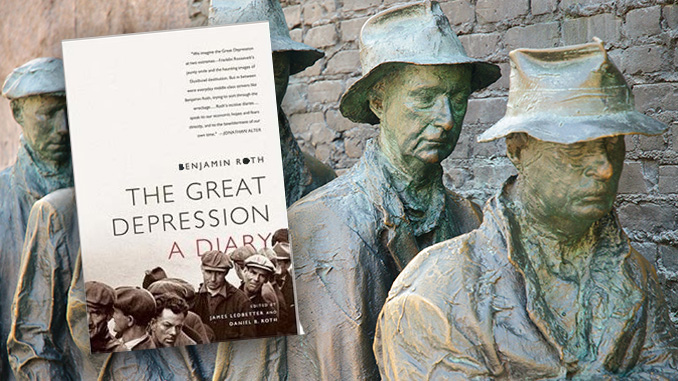
With last week’s proclamation from popular economist Harry Dent and his stark warning about the U.S. economy in 2024, anyone with a pulse could not wonder if he could be right. Anyone with a pulse knows that something about this economy isn’t right. Current small business lending levels from community banks are now nothing short of catastrophic. And, with the nature of day-to-day living conditions for most Americans living paycheck to paycheck and still wrestling with the results of two year’s crippling inflation, you cannot help but understand concerns about the possibilities of Dent’s correctness of his prediction. If he’s right and the future financial landscape is one headed down a possible perilous path, what’s in store for us?
Of course, too few people today can relate to living through the economic Depression of the 30s. I certainly cannot, though I do remember hearing stories about it. I am also sure I would not have fared well if I had. A few years back, however, I picked up a book that provides a stark and riveting account of exactly what it was like to scratch and claw through the ten years between the beginnings of the Great Depression and the beginning of the Second World War. If you found Dent’s proclamation a bit unnerving and without question, I highly recommend this book.
A Daily Log of the Great Depression
When the stock market crashed in 1929, author Benjamin Roth was a young lawyer and middle-class American in Youngstown, Ohio. The Great Depression: A Diary is just that…a diary. As Roth began to understand the significance and consequences of what was occurring to everyday Americans and their way of life, he decided to record his impressions of the event.
For readers and economics buffs, this book is nothing short of a daily log of the Great Depression. It is an almanac of entries and reveals the effects of the Great Depression by one living through it. Roth’s first-hand accounts of events as they unfolded set this book apart from those typical texts presenting the Depression as only an economic event. What really sets this book apart is the author’s first-hand account of experiences as they unfolded as compared to more common historical accountings of the period. Roth’s entries evidence his predictions and anticipated results of daily news stories from various cities and then, as if to keep your attention, would actually go back and review past entries and add updates such as “These predictions turned out to be completely wrong.”.
Savings Passbooks Quoted as Stocks
One of the experiences you will take with you from reading this treasure is that during the Depression, there simply was no money! Roth repeats throughout the book that no one has physical cash. The combination of the 1929 stock market crash, continued market decline (90% in all), and widespread bank failures meant no savings. Even the banks that didn’t fail basically froze all depositor savings accounts and set draconian limits regarding how much money a customer could withdraw in a day. In some cases, it was as low as just a few percent of the money in their account.
In many cases, people became so desperate for cash that they sold their savings passbooks (those on shuttered banks) for just a few cents on the dollar. Prices on passbooks and documents on banks were actually quoted daily in the newspaper, just like stocks. Investors with available cash purchased passbooks and then made “backdoor” deals with the banks, trading purchased passbooks in return for foreclosed real estate. This was not only common, but in many cases, it allowed the banks to reopen since they no longer had the obligation on the passbook savings.
An Exceptional Read That All Brokers Will Enjoy and Will Learn From
All factoring brokers and commercial finance consultants can measure their success by their acquired knowledge to some degree. In addition to a keen understanding of small business finance products, they must also be aware of economic trends and how they affect small business owners. Recessions can not only have a disastrous effect on most small businesses when it comes to cash flow but can also spell their demise. As a commercial finance consultant, small business owners will seek your advice. The more you know about economics, recessions (and depressions), the more small business owners will value you. Your opinions and those of others matter, especially in today’s challenging economy. Post frequently on your website and your blog, take advantage of today’s economic problems, and build your clientele.




